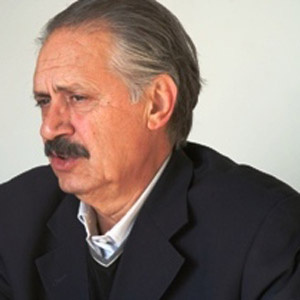Just an Executant
Ali Bigdeli believes that Iran’s diplomatic apparatus has no autonomy, shows no initiatives and merely actualizes the president’s objetives

Manouchehr Mottaki has been one of the few ministers having the chance to keep his position in Ahmadinejad’s second cabinet. His reselection has raised discussions among foreign affairs experts on his record in the past four years and diplomatic apparatus’ performance in the next four years. Dr. Ali Bigdeli, professor of Shahid Beheshti University and foreign affairs analyst has commented on the topic:
In all countries minister of foreign affairs and the diplomatic apparatus enjoy a considerable level of autonomy that allows them to lead their initiatives. In developed countries such as the United States and EU members, ministry of foreign affairs carries out many plans without being obliged to report to the president. That is a globally acknowledged principle.
However, in Iran the foreign minister is merely the enforcer of president’s objectives. The minister can not conduct any initiatives and for every diplomatic visit or negotiation, he has got to provide the president with the details. Mottaki’s will to fulfill these duties has been the primary reason for his reselection.
Unfortunately, neither autonomy nor initiative is observed in Iran’s diplomatic apparatus. Ministry of foreign affairs should be granted some level of autonomy, since the minister attends international diplomatic meetings. He is the one knowing about the details of world’s diplomatic developments and he is the one who should recommend the president which conference to participate in or which countries to cooperate with. But it seems that Mottaki prefers to materialize the president’s commands.
As a diplomatic principle, when taking part in a conference, foreign ministers should not wait for their turn in order to speak; rather they should dominate the meeting with knowledge about the topic and eloquence. With no doubt Mottaki lacks these qualities and in international diplomatic circles, more than being influential he is influenced.
Seemingly the status quo will prevail for the next four years in Iran’s diplomatic body. The only difference is that the circumstances are not the same as before. For example, during the post-election unrest some foreign citizens were detained and later released with mediation of some regional states. No initiatives were demonstrated from the Iranian side in these cases.
When foreign ministry’s autonomy is not acknowledged, no initiatives will be carried out naturally. In that case our regional and international opponents will become the ones picking the fruits of diplomatic initiatives and brokering.
In all countries minister of foreign affairs and the diplomatic apparatus enjoy a considerable level of autonomy that allows them to lead their initiatives. In developed countries such as the United States and EU members, ministry of foreign affairs carries out many plans without being obliged to report to the president. That is a globally acknowledged principle.
However, in Iran the foreign minister is merely the enforcer of president’s objectives. The minister can not conduct any initiatives and for every diplomatic visit or negotiation, he has got to provide the president with the details. Mottaki’s will to fulfill these duties has been the primary reason for his reselection.
Unfortunately, neither autonomy nor initiative is observed in Iran’s diplomatic apparatus. Ministry of foreign affairs should be granted some level of autonomy, since the minister attends international diplomatic meetings. He is the one knowing about the details of world’s diplomatic developments and he is the one who should recommend the president which conference to participate in or which countries to cooperate with. But it seems that Mottaki prefers to materialize the president’s commands.
As a diplomatic principle, when taking part in a conference, foreign ministers should not wait for their turn in order to speak; rather they should dominate the meeting with knowledge about the topic and eloquence. With no doubt Mottaki lacks these qualities and in international diplomatic circles, more than being influential he is influenced.
Seemingly the status quo will prevail for the next four years in Iran’s diplomatic body. The only difference is that the circumstances are not the same as before. For example, during the post-election unrest some foreign citizens were detained and later released with mediation of some regional states. No initiatives were demonstrated from the Iranian side in these cases.
When foreign ministry’s autonomy is not acknowledged, no initiatives will be carried out naturally. In that case our regional and international opponents will become the ones picking the fruits of diplomatic initiatives and brokering.

